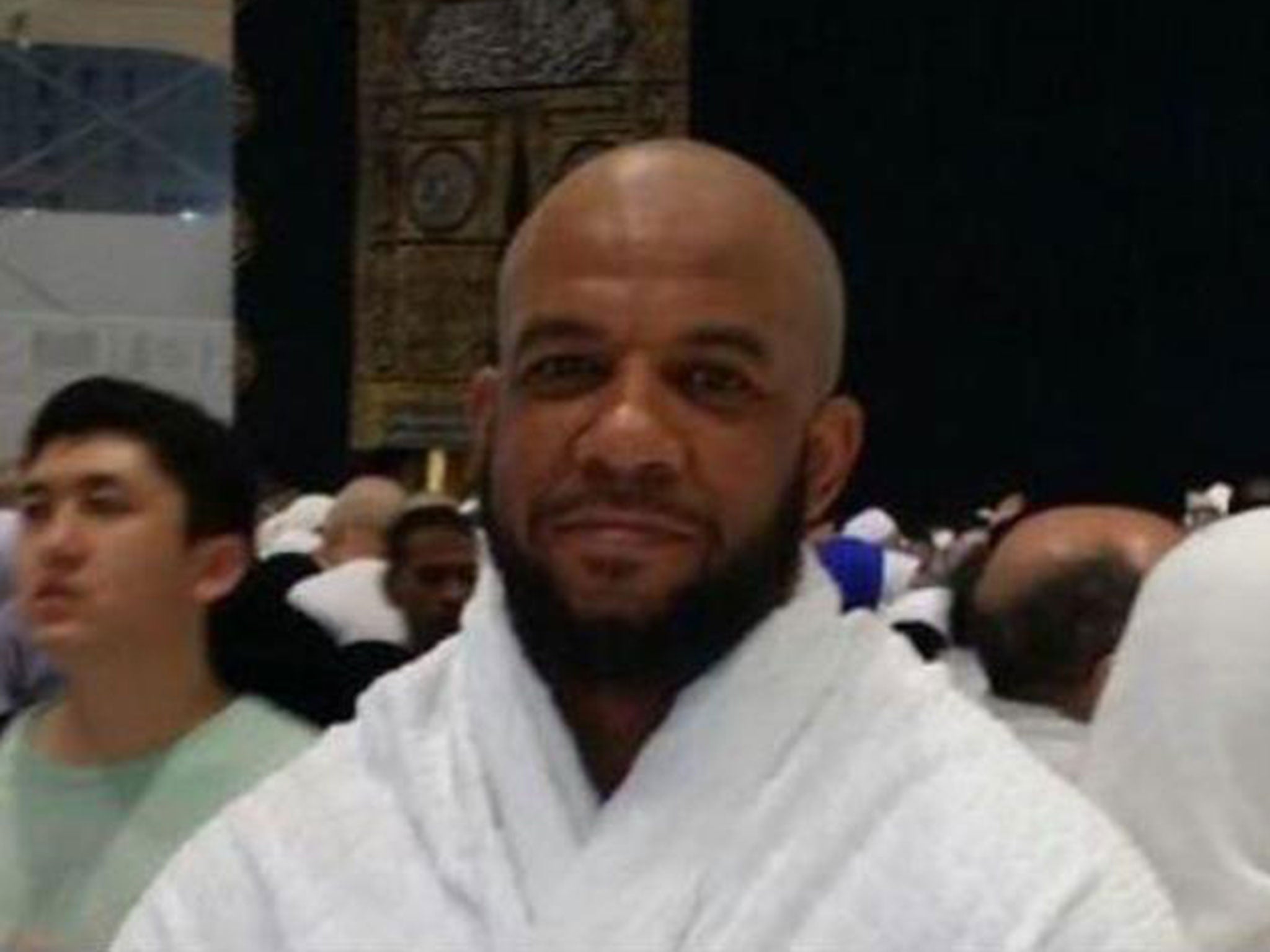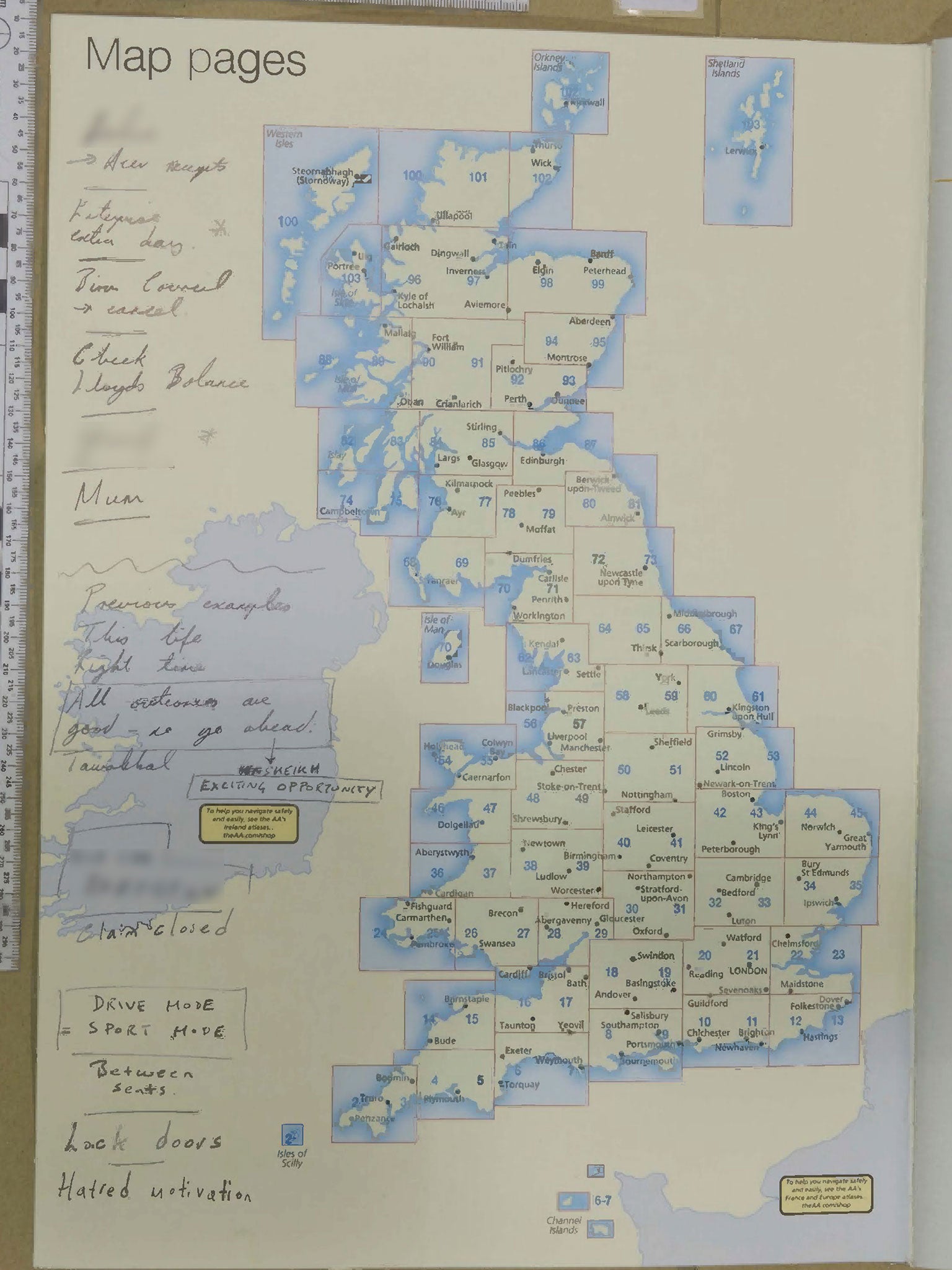Westminster terror attacker Khalid Masood was lawfully killed, inquest concludes
Minister's bodyguard shot terrorist dead in the belief he would kill him
A minister’s bodyguard “lawfully killed” the Westminster attacker as he tried to find more victims, an inquest has found.
A jury said Khalid Masood was moving towards close protection officers “at speed with knives still in hand” when one of them opened fire.
The 52-year-old terrorist had already killed four victims with his car on Westminster Bridge, before stabbing PC Keith Palmer to death outside the Houses of Parliament.
CCTV played to the jury showed him chasing unarmed officers through the Carriage Gates vehicle entrance and stabbing PC Palmer multiple times even after he fell on the ground.
“Multiple witnesses noted Masood’s intention to inflict serious harm and/or take life as he continued his attack,” the jury concluded.
“He continued to move towards Westminster Hall without stopping or changing direction.”
Two bodyguards who had heard him crash his car and then the sound of screams approached as unarmed officers ran in the other direction pursued by Masood.
“The officers shouted verbal warnings at Masood, by which time both had their pistols drawn and aimed, whilst attempting to create distance between themselves and him,” the jury said.
“The warnings had no effect on Masood and he continued to move towards the officers at speed with knives still in hand.
“With Masood approaching striking distance, SA74 shot Masood three times until he no longer posed a threat.”
The attacker was given immediate first aid and CPR, before being taken to St Mary’s Hospital and pronounced dead.
The jury reached its verdict in little over two hours, after hearing five days of evidence at the inquest, which was held automatically because Masood was killed by police.
A previous inquest into the deaths of his five victims found they had been unlawfully killed.
American tourist Kurt Cochran, 54, retired window cleaner Leslie Rhodes, 75, Aysha Frade, 44, and Romanian tourist Andreea Cristea, 31, were hit by Masood’s car on Westminster Bridge, where 29 other people were seriously injured.
He crashed the vehicle into railings surrounding the Houses of Parliament and then ran into Carriage Gates armed with two large knives, which he used to murder PC Palmer.
Mark Lucraft QC, the chief coroner of England and Wales, is writing a “prevention of future deaths report” after finding that PC Palmer could have been saved if the Metropolitan Police had posted armed officers on the entrance.
But while delivering his conclusions on Friday he defended the actions of the force’s acting Commissioner Sir Craig Mackey, who locked himself in a car during the attack.

Judge Lucraft described his actions as a “sensible and proper” to protect himself and others inside the vehicle, where they had no radio or protective equipment having just left a ministerial meeting.
He added that Masood had “already stabbed PC Keith Palmer” by the time Sir Craig saw him and that the terrorist was shot seconds later.
The close protection officer had recounted shooting the attacker three times after he refused to drop his weapons and came towards him.
“He was carrying two large knives and I could clearly see that they were covered in blood,” he said. “He was going to kill me.”
The atrocity, on 22 March 2017, was the first to be claimed by Isis in the UK and was followed by four other terror attacks in London and Manchester that year.
Speaking at a security conference earlier this week, the head of UK counterterror policing said the incidents – four claimed by Isis and one far-right – were “essentially unconnected”.
“There is no doubt the Westminster Bridge attack by Masood had an effect in galvanising other efforts, but Manchester and London Bridge were being planned before Masood’s attack,” Assistant Commissioner Neil Basu added.
Speaking after the verdict, he paid tribute to the “tremendous bravery of” PC Palmer, the close protection officers and all police involved in the attack.
“The whole attack lasted just 82 seconds but has had the most appalling consequences,” he added.
“My thoughts and deepest sympathies are with the victims, their families and loved ones who have been left devastated by their loss, as well as the many survivors.”

Despite Isis’s claim of responsibility, a “Jihad” document Masood sent to his wife and other contacts shortly before ploughing into pedestrians on Westminster Bridge is not known to have made mention of the terrorist group.
Masood, who was linked to members of Anjem Choudary’s banned al-Muhajiroun group, instead used selective excerpts of the Quran and other Islamic texts to justify his attack.
The inquest heard that Masood had a lengthy history of domestic abuse, crime and extreme violence, which saw him jailed twice and convert to Islam while in prison.
Police believe he may have considered using gas canisters to cause an explosion when he crashed his car, after telling children he was “going to die fighting for God” weeks before the atrocity.
Masood had been known to the security services for his Islamist connections since 2004 but was not considered an imminent threat at the time of the attack.
An MI5 agent, known as witness L, claimed the decision to downgrade Masood as a low risk to national security had been “sound”, adding: “There simply wasn’t enough intelligence for us to work on that would have allowed us to identify his plot and work with the police to frustrate it”.
Criminologists at Birmingham City University said Masood repeatedly “reinvented himself”, with different partners and new names including Adrian Russell Elms, Adrian Ajao, Khalid Choudry and eventually Khalid Masood.
After reviewing his life and interviewing a flatmate who lived with the terrorist between December 2016 and weeks before the attack, they concluded that Masood’s persistent violence may have been a “means to assert his ‘manliness’ and regain power that may have been lacking elsewhere in his life”.
His former housemate recalled him “name-calling politicians and all the bad things that they have done”, while being “obsessed with bodybuilding”.
Professor Imran Awan said Masood’s two prison sentences may have been key to his radicalisation.
“As a convert with limited previous knowledge of Islam and superficial theological knowledge gained inside, Masood was vulnerable to ideologies of intolerance, hatred and violence,” he added.
“Masood went through a radicalisation process contributing to blame attribution, the dehumanising of his victims and loss of moral restraints. This type of behaviour provided him with a sense of commitment to a cause which he viewed as justifiable.”
Bookmark popover
Removed from bookmarks